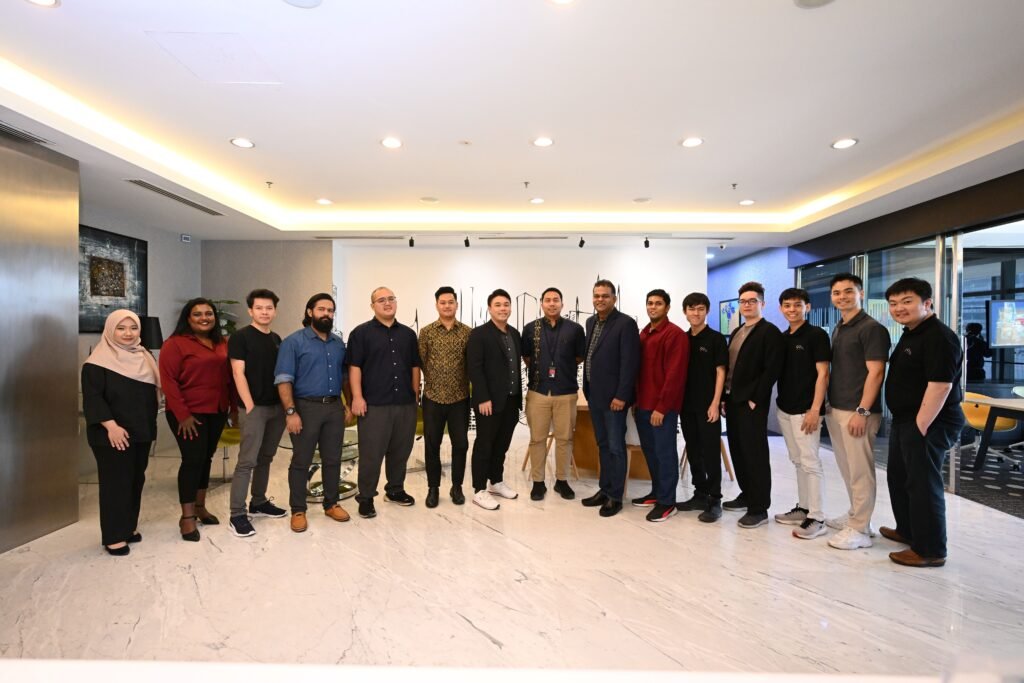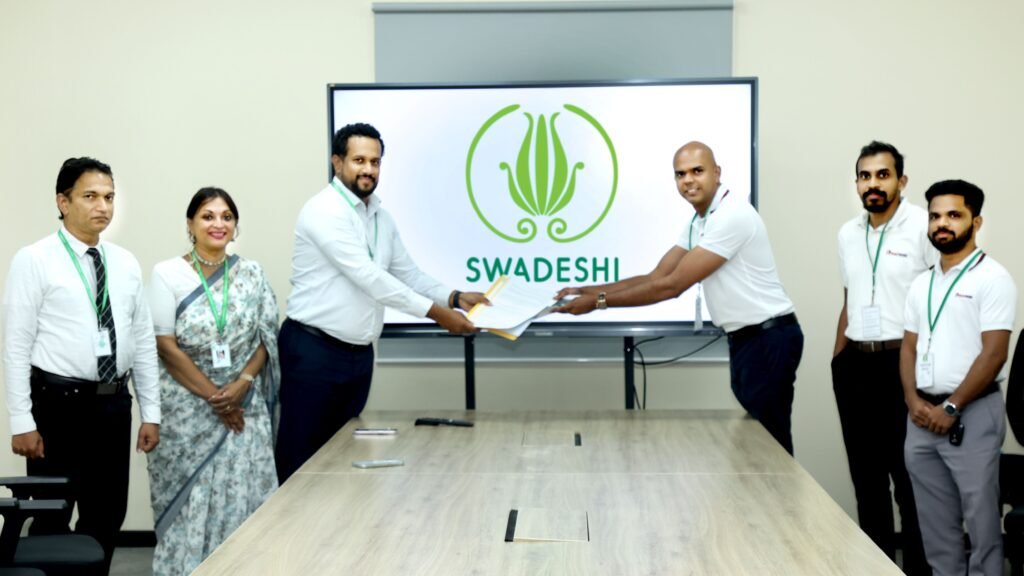In the rich landscape of Sri Lanka’s tea industry, certain estates command admiration for their historical significance and contributions to the craft. Pedro Estate stands out as a prime example, representing a legacy of dedication and quality that has shaped Ceylon tea. With a narrative woven from passion and innovation, Pedro has established itself as a key player in the industry’s evolution.
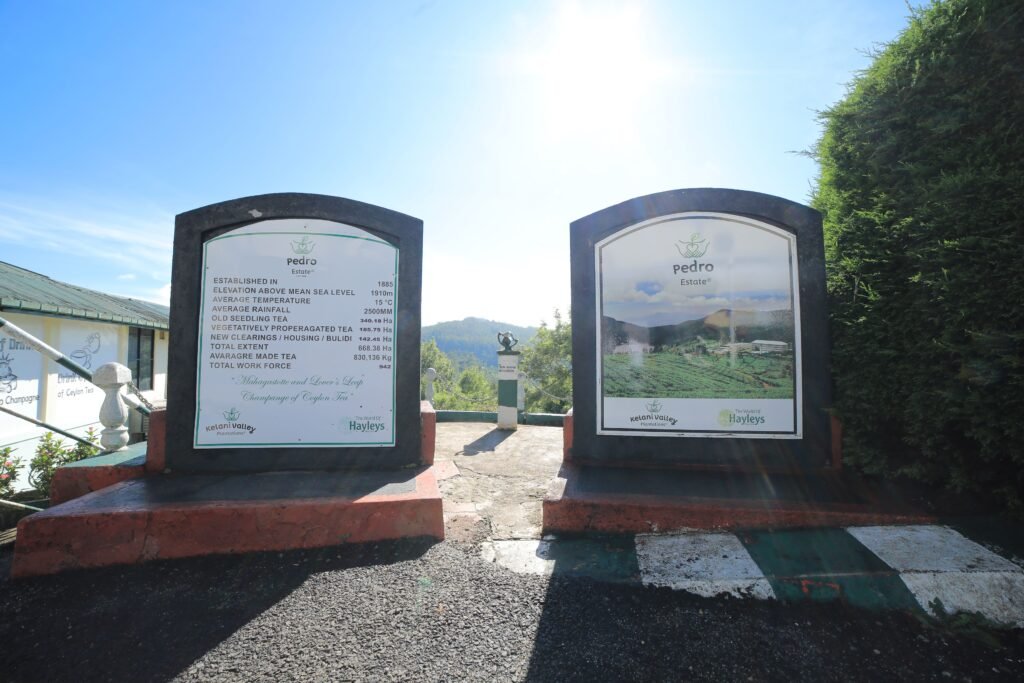
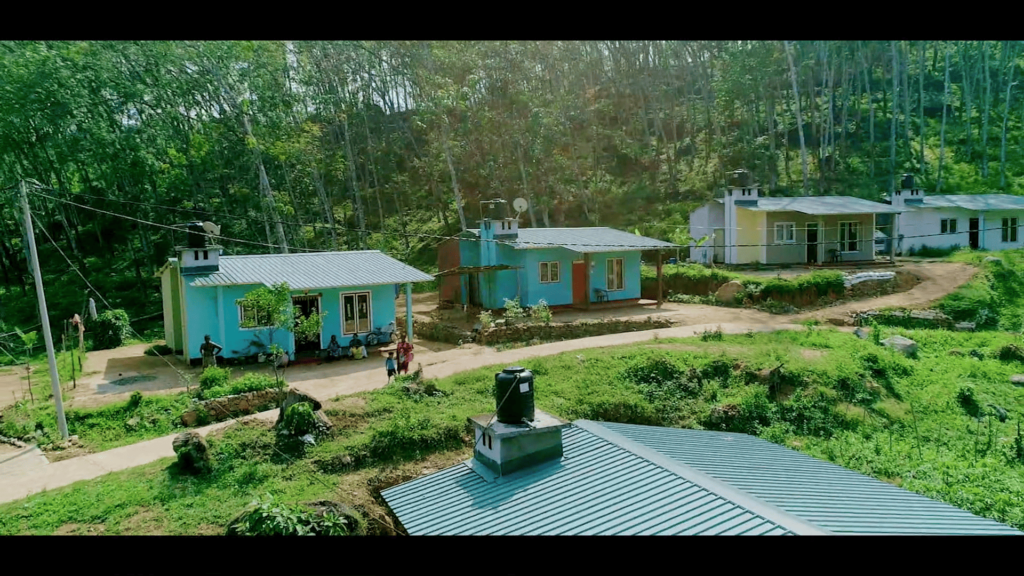
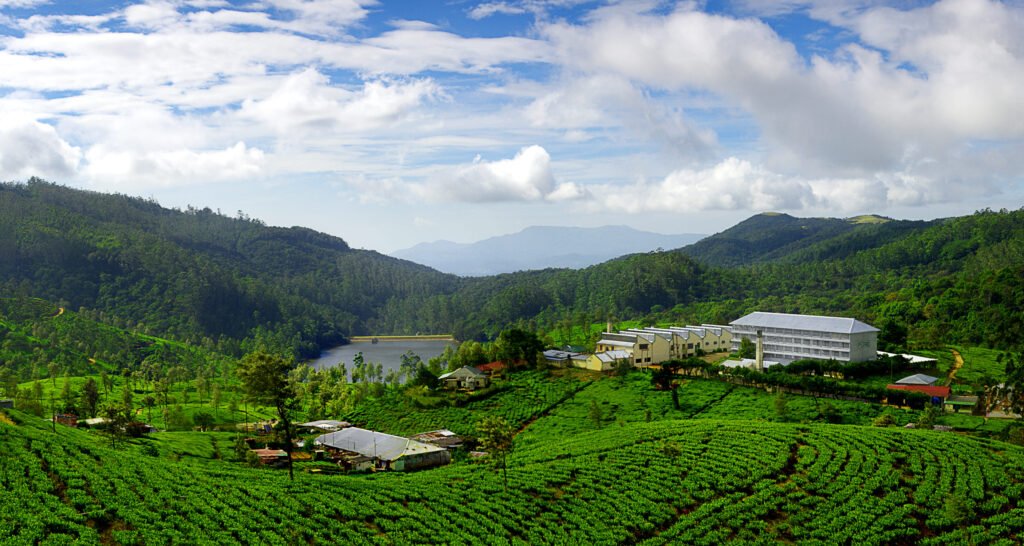
Established in 1840, this estate began its journey focusing on coffee and cinchona before making a transformative shift to tea in 1870. The introduction of tea plants in the Naseby division marked a pivotal moment, positioning Pedro as a significant player in the unfolding narrative of Ceylon tea.
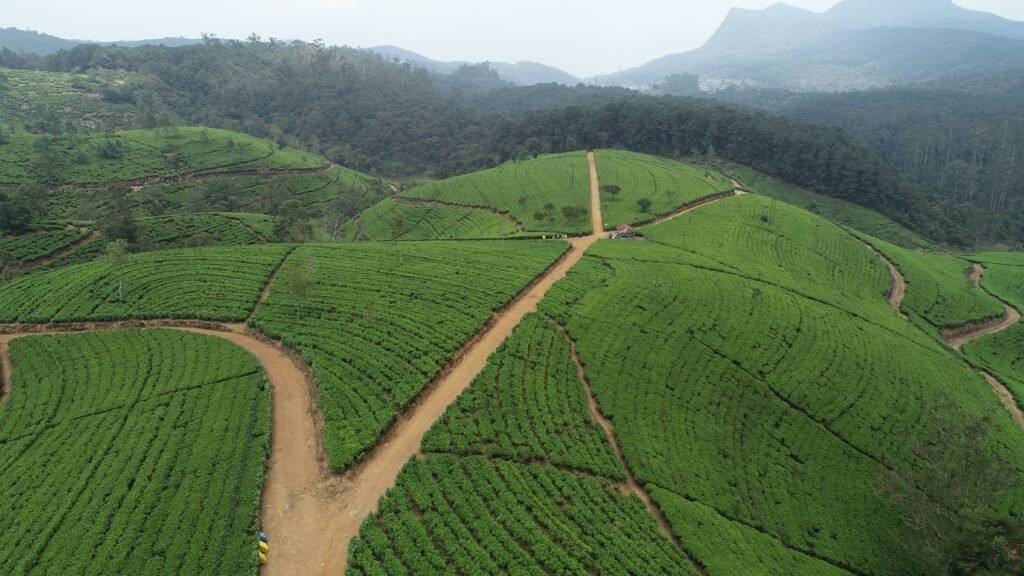
Following in the footsteps of James Taylor at Loolecondera Estate in 1867, Pedro Estate leveraged its unique altitude and climate to cultivate teas renowned for their exceptional quality. The name “Pedro,” derived from the Sinhala term for “dry grassy rocky plains,” beautifully encapsulates the essence of the landscape that nurtures these extraordinary brews.
A legacy woven through time
Since its inception, Pedro Estate has played a crucial role in shaping Sri Lanka’s tea industry. By 1880, it established its first tea factory, “Fairyland,” under the ownership of Captain F. Bayley, who maintained control until 1893. Although the original factory succumbed to fire in 1940, it was rebuilt in 1954 and reopened with great fanfare, honored by His Royal Highness the Duke of Edinburgh during Queen Elizabeth II’s visit to Sri Lanka.
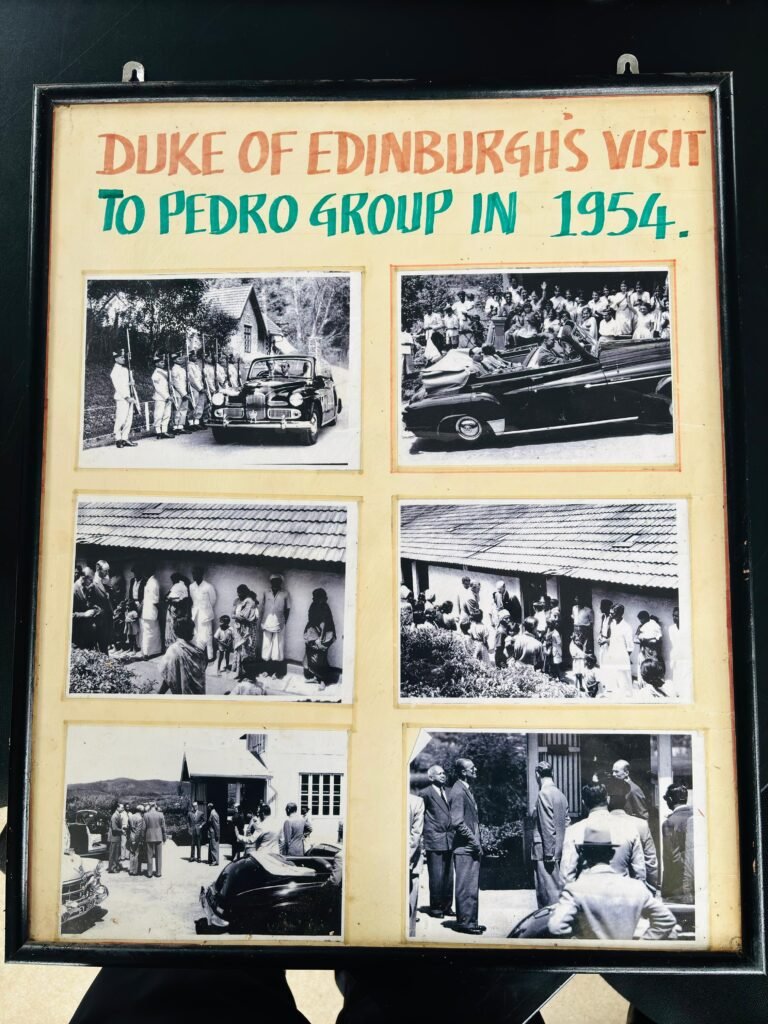
Set at an altitude of 1,828 to 2,400 meters, Pedro Estate enjoys a cool climate, with temperatures ranging from 10-15°C and an annual rainfall of 2,500 mm—ideal conditions for premium tea cultivation. The estate comprises seven distinct divisions: Pedro, Lovers’ Leap, Naseby, Moon Plains, Scrubs, Mahagastotte Upper, and Mahagastotte Lower. Each division contributes to Pedro’s unique flavor profile, attracting tea lovers and connoisseurs from around the globe, reinforcing its esteemed status in the international market.
Managed by the Nuwara Eliya Tea Company from 1898 until nationalization in 1972, Pedro Estate has thrived under the stewardship of Kelani Valley Plantations PLC (KVPL) since 1992. This continuity perpetuates the legacy of James Taylor, often hailed as the father of Ceylon tea. However, the significance of Pedro Estate extends beyond its historical journey; it is deeply intertwined with the welfare of its community.
Committed to community development
Pedro Estate demonstrates a profound commitment to the well-being of its workers and the surrounding community through various initiatives that have set global benchmarks in corporate social responsibility. The company’s flagship corporate sustainability and responsibility initiative, “A Home for Every Plantation Worker,” is globally recognized as the gold standard for enhancing quality of life and work for employees. Since its inception in 2006, this initiative has positively impacted over 8,000 direct workforce members and more than 58,000 residents across 25 estates. Pedro Estate’s responsibility extends beyond its workforce, encompassing the broader community, ensuring sustainable and inclusive development for all.
The initiative is built on four primary pillars: Living Environment, Health & Nutrition, Community Capacity Building, and Youth Empowerment. It goes beyond providing stable housing, fostering a deep sense of belonging and security among workers and their families, ensuring their holistic well-being and sustainable development.
Beyond housing, Pedro Estate prioritizes essential services that are crucial for the overall well-being of its community. This includes comprehensive healthcare programs for mothers and children, ensuring that families have access to necessary medical facilities. The estate also offers crèches for working parents, creating a supportive environment for children while their parents are at work. Access to clean water is a critical focus, reflecting the estate’s commitment to improving living conditions.
Dr. Roshan Rajadurai, Managing Director of Hayleys Plantations, stated, “Being recognized as one of the LMD – Most Respected Entities in the Plantation Sector for 2024 is a tremendous honour for KVPL. This recognition underscores our unwavering commitment to environmental sustainability, ethical business practices, and community well-being. Our robust ESG framework, coupled with our dedication to transparency and accountability, has been instrumental in driving our success. I commend our teams for their exemplary commitment to sustainability and corporate responsibility.”
Extension of comprehensive sanitation facilities has been another key priority for KVPL. In addition to facilitation of sanitation projects across its estates in collaboration with the Government and the Plantation Human Development Trust (PHDT), KVPL has also invested directly in additional toilet facilities across its estates.
Similarly, the company also supported the establishment of community centers, and recreational facilities to further enrich the lives of residents, promoting a healthy lifestyle and community engagement.
As Anura Weerakoon, Director/ CEO of Kelani Valley Plantations PLC states, “At Kelani Valley Plantations, we believe that true sustainability goes beyond environmental practices; it encompasses the holistic well-being of our people and the communities we serve. By investing in our workforce and their families, we are not only fostering a thriving estate but also creating a legacy of care and empowerment.”
These efforts align with Kelani Valley Plantations’ ESG Sustainability Framework and the UN Sustainable Development Goals (SDGs), reinforcing the estate’s dedication to the health and prosperity of its employees and their families. Notably, Kelani Valley Plantations is the first Regional Plantation Company to pledge commitment to the UNGC’s 10 Principles in 2006 and the UN CEO Water Mandate in 2007, firmly believing that its people are the heart of the business. This ethos has been the cornerstone of the company’s continued local and global leadership in the plantation industry.
Pioneering innovations for a sustainable future
At the forefront of innovation, Pedro Estate is integrating advanced technology to enhance production processes and sustainability initiatives. Recently, a cutting-edge color sorter with 36 cameras was installed, significantly elevating tea processing quality. The estate has also introduced a hot air boiler system with two radiators, optimizing firing and withering operations. Variable Frequency Drives (VFD) have been incorporated to boost energy efficiency, and traditional factory lighting has been replaced with LED bulbs, resulting in substantial energy savings.
A strategic redesign of machinery layout in key areas, including the rolling and drying rooms, has improved labor efficiency. The adoption of digital weighing systems for precise measurement further reflects Pedro Estate’s commitment to enhancing tea quality while minimizing environmental impact.
Recent milestones and global engagement
In a significant recent achievement, Pedro Estate welcomed over 100 esteemed scientists from Europe and South Asia for the South Asian Nitrogen Hub (SANH) Annual Conference in October 2023. Organized by the Faculty of Agriculture at the University of Peradeniya and led by Professor Mark Sutton, the conference focused on critical issues related to nitrogen pollution, in support of their broader goal of sustainable nitrogen management across South Asia by 2030.
Additionally, the estate launched the “Weather Kids Programme” in partnership with UNICEF, introducing 20 child-friendly DIY Digital Weather Stations. This initiative encourages digital literacy among schoolchildren while promoting environmental stewardship through hands-on learning experiences in data management and climate science.
Pedro Estate also engages in a micro-watershed protection program at the Lovers Leap Division, conducted in collaboration with Kirin Beverages and PHDT. Ongoing partnerships with the Faculty of Agriculture at the University of Peradeniya and the Postgraduate Institute of Agriculture (PGIA) focus on research and development, while collaborations with the International Union for Conservation of Nature (IUCN) aid in biodiversity assessments and watershed conservation projects.
Celebrated for quality and sustainability
Pedro Estate’s unwavering commitment to quality is exemplified by its extensive array of awards and certifications, underscoring its dedication to excellence. The estate proudly holds the Rainforest Alliance Certification, recognizing its adherence to sustainable agricultural practices. Additionally, it is ISO 22000:2018 certified, which ensures stringent food safety management protocols are in place. The implementation of Hazard Analysis and Critical Control Points (HACCP) guarantees safety throughout production, while Good Manufacturing Practices (GMP) uphold consistent quality standards.
The estate has also received the Eco Label Sri Lanka, highlighting its environmentally friendly practices, and ISO 14064-1:2018 certification for its commitment to greenhouse gas accounting. The estate’s focus on creating a positive work environment is further recognized with the Great Place to Work Certification.
To further community development and environmental conservation, Pedro Estate actively seeks partnerships with a variety of organizations. Collaborations with the People’s Human Development Trust (PHDT), the Institute of Sustainable Development (ISD), Save the Children, and UNICEF have enabled the estate to implement impactful programs addressing social and environmental challenges. Through these alliances, Pedro Estate showcases its commitment to sustainable development and social responsibility, positively influencing the community and securing a brighter future for all.



